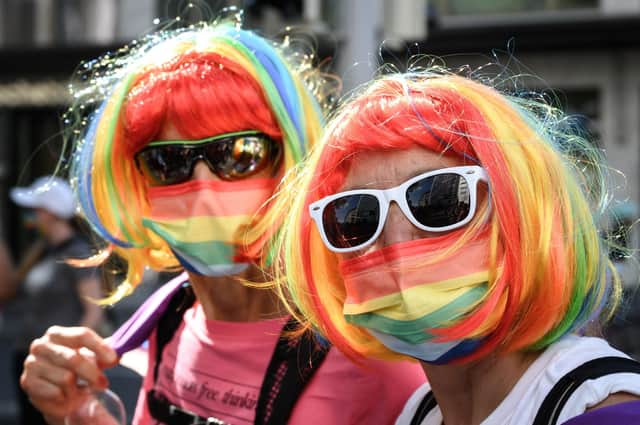Scotland's Gender Recognition Reform Bill isn't perfect but it is a really important step forward – Vic Valentine


For trans men, trans women, and non-binary people (who don’t see ourselves as either men or women), being recognised can be harder than for most. This is particularly true when it comes to being recognised on your birth certificate.
The Gender Recognition Act is the law that sets out the process by which a trans man or woman can update their birth certificate. Because of the heavy requirements in the current Act, many trans people have not done this.
Advertisement
Hide AdAdvertisement
Hide AdThis can mean that in meaningful moments in life, like starting college or a new job, or registering to get married, you have to show a birth certificate with an ‘M’ or ‘F’ that doesn’t match who you are. This can make these occasions, already stressful, exciting and full of anticipation to different degrees for us all, even more complicated.
That’s why so many of us welcomed the Gender Recognition Reform (Scotland) Bill, that would change the law to make the process of changing your birth certificate much simpler and fairer, and more like the processes trans people have been using for years to update other identity documents like driving licences and medical records. One of the key proposals in this Bill is moving to a system of ‘self-declaration’.
At the moment, trans men and women have to go through a stressful, upsetting, and intrusive process. They have to make an application to a tribunal of doctors and judges who never meet them, and provide the tribunal with a psychiatric diagnosis, and a detailed report explaining their personal choices about medical treatments.
‘Self-declaration’ means that if the proposed Bill passes, a trans man or woman will sign a witnessed legal oath, stating they’re living as a man or a woman and intend to for the rest of their life. This is part of the current process. But they will no longer have to provide medical evidence, or have a tribunal assess their application.
Instead, their legal oath will be taken as suitable evidence that they have thought about who they are, and are making the application on a serious, genuine basis. The process would no longer rely on the outdated and offensive assumption that who they are is a mental illness. Or require them to provide private information about their bodies to a panel of strangers. It would instead treat trans men and women, themselves, as the people who know who they are best.
Many places around the world now use the ‘self-declaration’ approach. The first country to do so was Argentina a decade ago, with Ireland doing it back in 2015, and Switzerland the most recent to do so in Europe, earlier this year.
The proposals from the Scottish Government are not perfect. In particular, we would continue to have a law that means that non-binary people, like me, have no way to be legally recognised. But they would be a really important step forward.
A law based on ‘self-declaration’ will send an important signal that Scotland welcomes, supports and accepts trans men and women. And that is a Scotland I want to live in.
Vic Valentine is manager of Scottish Trans
A message from the Editor:
Thank you for reading this article. We're more reliant on your support than ever as the shift in consumer habits brought about by coronavirus impacts our advertisers.
If you haven't already, please consider supporting our trusted, fact-checked journalism by taking out a digital subscription.
Comments
Want to join the conversation? Please or to comment on this article.
